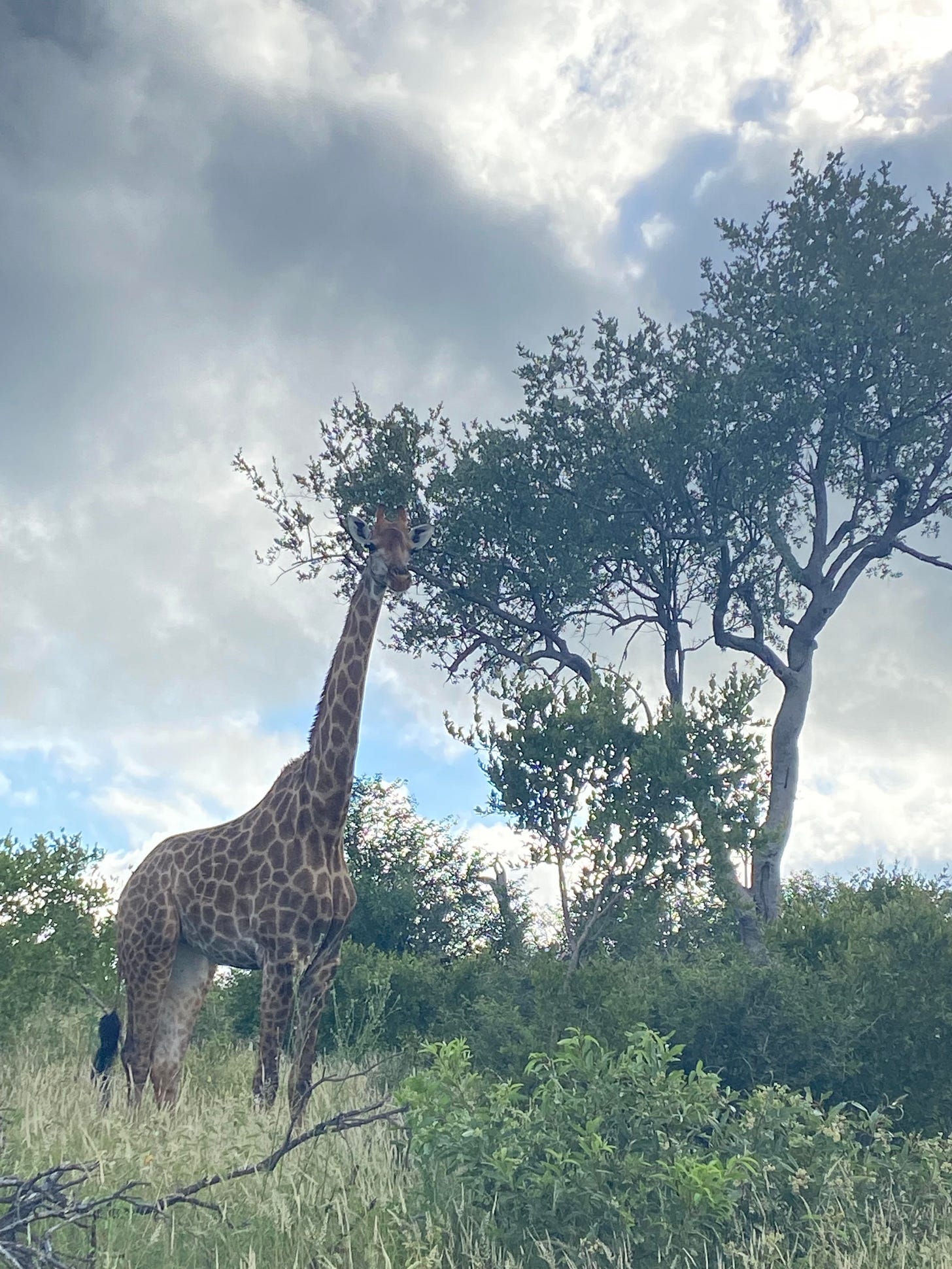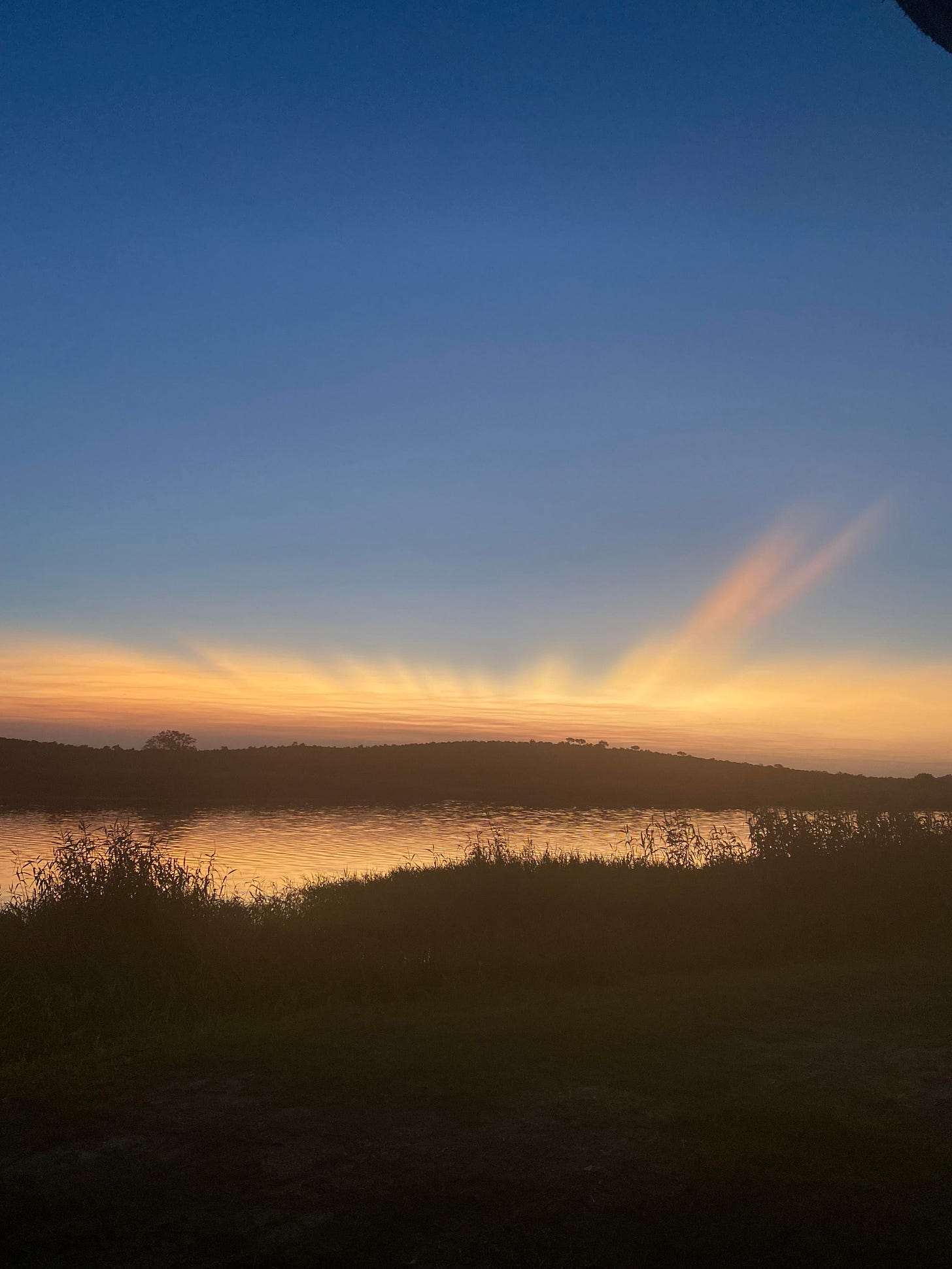Kruger: Week 1
It's hot. Really, really hot.
“So, how do you feel about spiders, scorpions and snakes?”
That was the beginning of my induction presentation at the new African Impact base i’m staying in for the next 4 weeks. Welcome back!
Location #2
I’m now at a safari camp in the Greater Kruger area. Nestled on the banks of the Olifants river with elephants and rhinos as neighbours, it’s been a week of waiting for someone to pinch me and tell me it’s time to wake up.
Yesterday morning less than 30 metres from where I was sat with my coffee two hippos were playing in the river, doing their best whale impressions - sticking their big behinds out of the water as they dove, spouting air and water and sounding off with their deep-bellied coughing calls. This is a sound we’ve repeatedly been woken up by as they leave the river to graze mostly at night.
PAUSE FOR HIPPO FACTS: Hippos are nocturnal, vegetarian and despite spending most of their time in the water can’t actually swim. Instead they walk along the riverbed and surface for air. You may use these at your next dinner party. You’re welcome.
Camp Life
Life at camp is split between two projects: photography and research. In the research group, our time is split into two activities: the horrendously early and…the horrendously early with physical labour. Game drives set off at 5:30am so we can track and record sightings of animals to monitor their health and the general broader health of the reserves we drive through. Giraffes and impala make regular appearances - the first because they’re so damn tall and the second because there are so many. Others are more elusive (I hope we manage to find the leopard who has been leaving tantalising tracks not far from camp), but the moment we saw 4 lionesses crossing the road directly in front of our vehicles was so surreal and I haven’t actually processed it yet. Other sightings have included hyena, zebra, various kinds of antelope and a few warthogs.
Now onto horrendously early with physical labour. This entails waking up at 4:30am to catch breakfast and load the safari vehicles at 5:20am, drive 1.5 hours into the bush to arrive at an unremarkable expanse of tall grass and short trees. But only unremarkable at first glance - for here be monsters. Specifically an invasive species of cactus called queen of the night that wraps around native trees. None of the animals eat it and its root systems steal water from the local plant life. All around a bad plant (albeit with a great name). We are tasked with slaying as many of these invaders as possible in 3 hours - or before the sun gets too unbearable. With saws, machetes, pitchforks and ropes we dismantle and chop them up and cart them away, ideally avoiding the 3 inch long spikes filled with a numbing toxin that snap under the skin. So far i’ve avoided injury, but there are four more weeks to go…
The Verdict?
The first week of 4:30am starts has been tough, but now that 8:30pm is the acceptable bedtime for everyone it’s actually quite incredible leaving camp with the moon still shining and watching the sunrise chase it out of the sky as we drive into the wilderness. Speaking of the weather, let me tell you I thought my transition to hot country inhabitant was complete last week when I woke up, felt a bit chilly so took a jumper out for breakfast to find that it was actually 22 degrees. And then we hit 42 degrees on Sunday and that hypothesis got blown out of the pool and incinerated in the heat. The temperature of the pool was 29 degrees and it was cooling.us.down. Even a crocodile popped up out of the river to catch the breeze. I’ve got a way to go yet.
Four more weeks to go, so expect many more animal sightings and cactus-slaying adventures. Also be prepared for an irritating amount of sunsets, such as this one:



